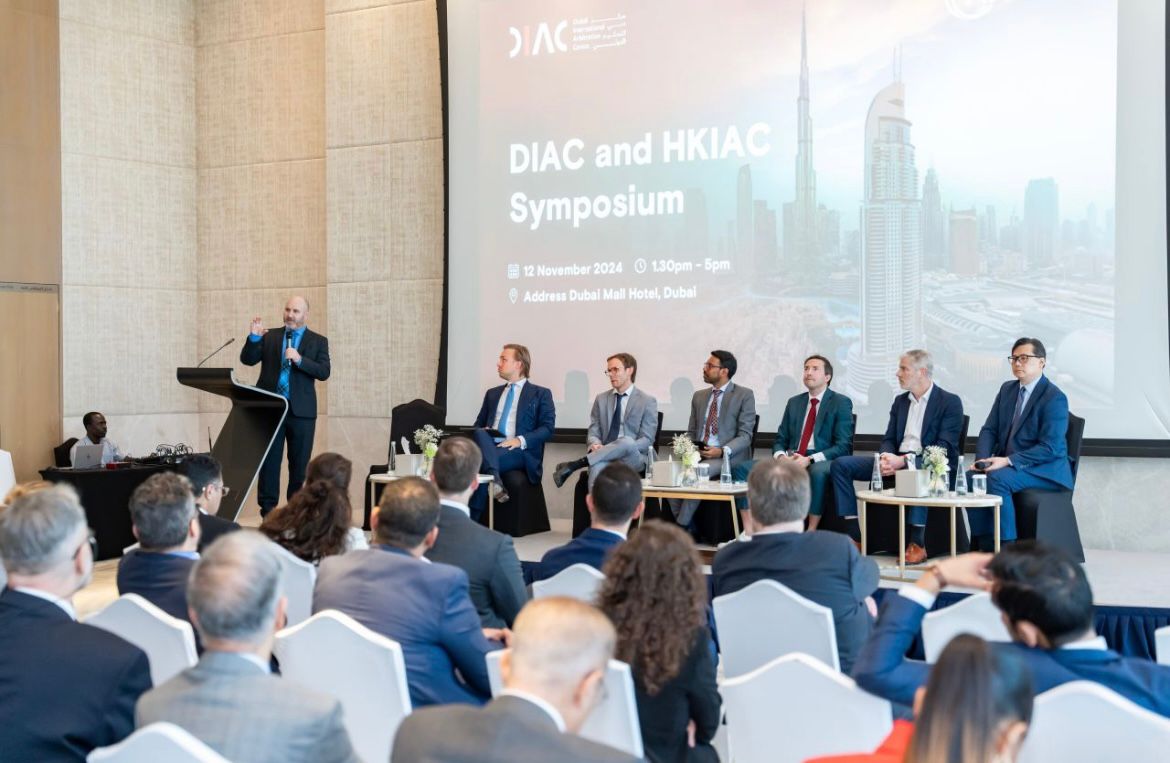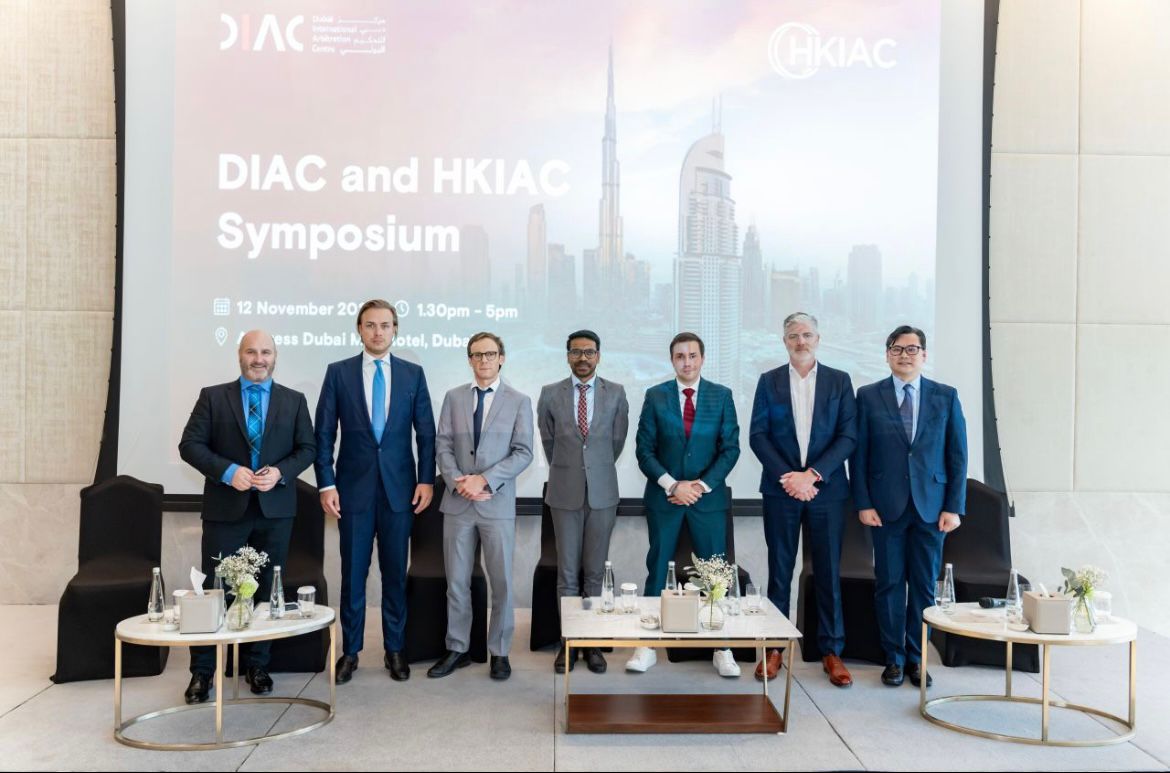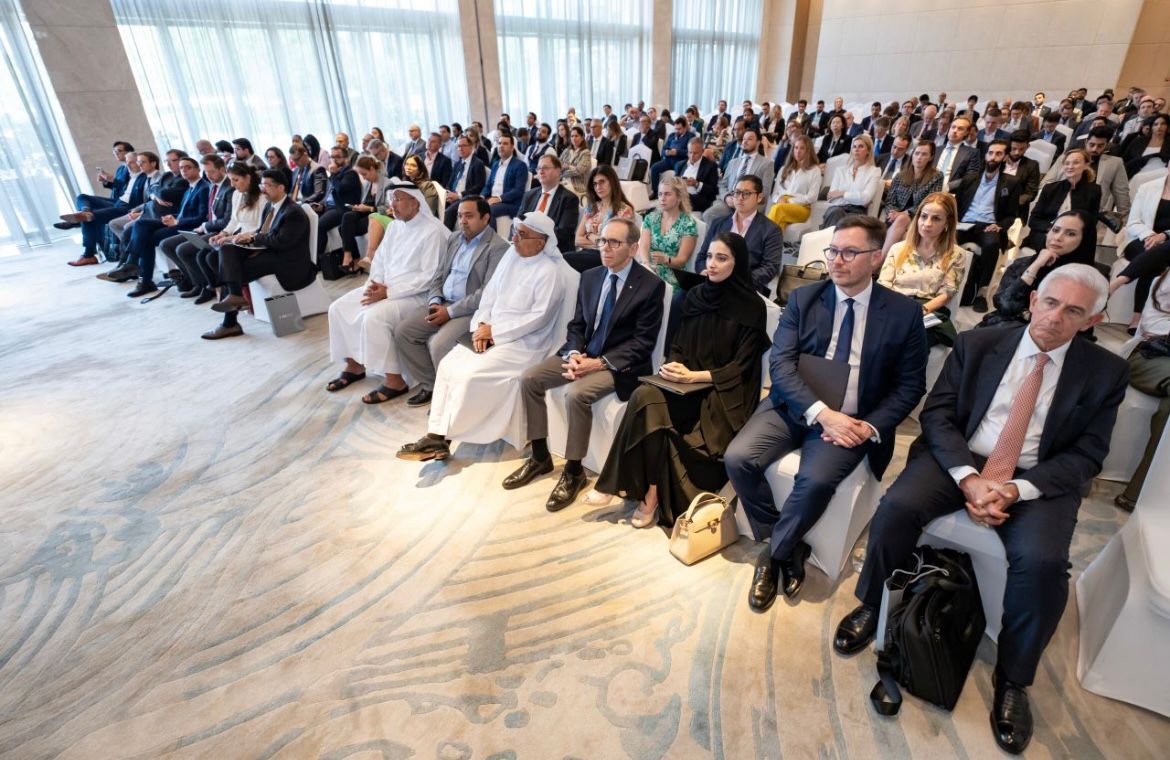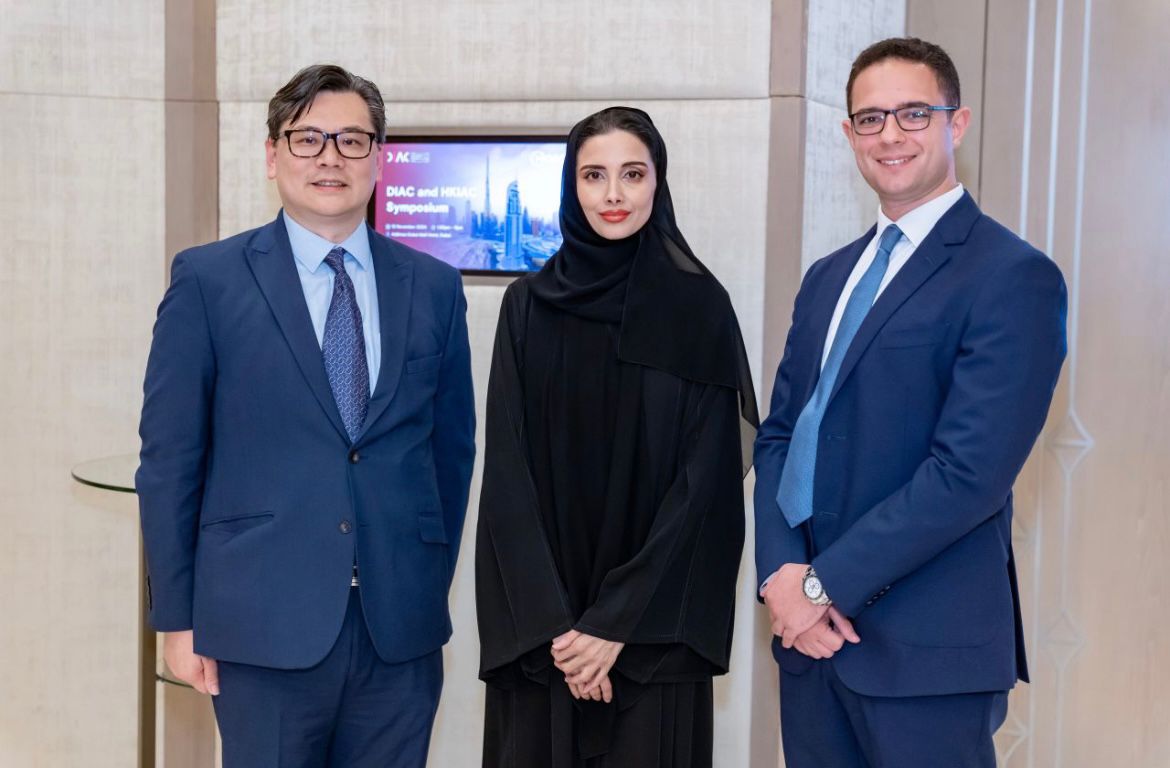eBRAM was invited to attend the seminar on "Shaping the future of dispute resolution - how technology is changing Arbitration"
12 November 2024
On November 12, 2024, a seminar titled "Shaping the future of dispute resolution - how technology is changing Arbitration" was held jointly by the Dubai International Arbitration Centre (DIAC) and the Hong Kong International Arbitration Centre (HKIAC).
This grand event brings together industry leaders, legal elites, and technological innovators to explore the innovative role of technology in the field of arbitration. Mr. Albert Leung, Chief Technology Officer of eBRAM International Online Dispute Resolution Centre, attended the seminar on behalf of eBRAM, and shared unique insights on the application of AI in various aspects of international arbitration with leading technology providers from all over the world during the panel discussion.
At the opening ceremony of the seminar, Jehad Kazim, Executive Director of DIAC, and Joanne Lau, Secretary General of HKIAC, respectively delivered opening speeches, emphasizing the crucial role of technology in the field of arbitration and placing high hopes on the outcomes of the seminar. Subsequently, Niuscha Bassiri, co-founder of ArbBoutique, delivered a keynote speech on the application of technology in arbitration, providing profound insights to the attendees.
Subsequently, two exciting group discussion sessions were held one after another, with representatives from technology providers, corporate legal, lawyers, and arbitration institutions expressing their views.
In the first panel discussion, Albert shared his unique views on the various applications of AI in international arbitration. He pointed out that eBRAM is using AI to build an ODR platform, which covers user identification, real-time transcription/translation, case analysis/summary and other fields. He predicts that in the next decade, artificial intelligence will play a more important role in the field of arbitration, but this change still depends on technological advancements and regulatory developments.
In addition, Albert also emphasized the potential of blockchain in file management, believing that it can serve as proof of trust replicas. However, he also pointed out that the promotion of smart contracts in the legal industry faces challenges in explaining their working principles and providing practical benefits, especially with slower adoption in the Asia Pacific region. He reminded the attendees that although artificial intelligence can improve productivity, it cannot replace humans, especially in the decision-making process, and they need to be vigilant about the risk of machine learning bias caused by incomplete training data.
When talking about the digital process of dispute resolution, Albert mentioned that the improvement of GenAI and computing processing capabilities will have a significant impact. He specifically pointed out that digital functions such as real-time transcription/translation can help eliminate language barriers, improve arbitration accessibility for small and medium-sized enterprises, and enhance overall productivity. In terms of data security and privacy, he shared eBRAM's experience in conducting privacy impact assessment by appointing an external network security audit company to ensure that the platform complies with the data privacy laws of many places, and has obtained the ISO27001:2022 information security management certificate.
Albert also acknowledges that there are obstacles at the technical, regulatory, and cultural levels that hinder the wider adoption of advanced technologies in the field of arbitration. He specifically mentioned that the implementation of the EU Artificial Intelligence Act may have an impact on the adoption of advanced technologies in the field of arbitration. Nevertheless, he still supports the use of open source technology to develop ODR platforms and effectively integrate them with top market solutions to ensure interoperability among arbitration technology providers.
Finally, Albert emphasized that technology can fundamentally reduce the "competitive divide" and improve fairness, rather than bringing unfair advantages to those who have the ability to bear it. He believes that this is a key measure to overcome the 'digital divide' and eliminate barriers to accessing arbitration services.
At the end of the seminar, Mr. Robert Stephen, the registrar of DIAC, delivered a closing speech, summarizing the achievements of the seminar and expressing a beautiful vision for the future technological development in the field of arbitration.
The successful holding of this seminar not only provided a valuable platform for participants to communicate, but also fully demonstrated the extensive application and unlimited potential of technology in the field of arbitration. The joint hosting of DIAC and HKIAC further demonstrates the firm determination and positive contribution of both parties in promoting innovation and development in the arbitration industry. eBRAM will also continue to be committed to the research, development and application of legal technology, and contribute more to the future development of the legal industry.








